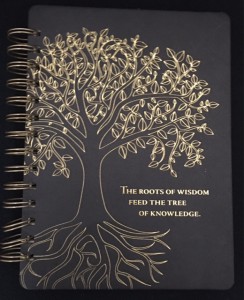[This was first published June 10,2012. Future-oriented bible readers tend to read the signs of the times as fulfillment of biblical forthsaying, whether in the Old or the New Testament of the Christian Bible. Prophesied dates and years pass and still no sign of fulfillment, except perhaps for one: the return of Israel to the Promised Land. At the turn of another year, the serious superstitious or half-believing readers of horoscopes rely on prognostications of professional and quack soothsayers and expectedly, they are popular seasonal guests at talk shows. It is amusing to listen to their sometimes vague and general pronouncements on how the coming year will work itself out. The Eternal God who knows the future tells Israel (and the rest of us who take His Word seriously):
“To the Torah and to the Testimony: if they speak not according to this word, it is because there is no light in them.” Isaiah 8:20.
From the OVERVIEW from The Stone Edition of TANACH, here are more excerpts from “The Essence of Prophecy.” For those who are interested in owning this Hebrew Bible, it may be ordered from Mesorah Publications, Ltd., The ArtScroll Series; www.artscroll.com.—Admin1]
—————————
 Essential to an understanding of Tanach is the concept of prophecy. Colloquially, people think of prophets as predictors of the future or as spokesmen for an ideal. However, although prophets may perform these functions, they are not essential to prophecy.
Essential to an understanding of Tanach is the concept of prophecy. Colloquially, people think of prophets as predictors of the future or as spokesmen for an ideal. However, although prophets may perform these functions, they are not essential to prophecy.
As defined by the classic Renaissance commentator, Rabbi Moshe Chaim Luzzatto:
Part of a prophet’s function may include being sent on a mission by God, but this in itself is not the essence of prophecy, nor is it necessary that a prophet be sent on a mission to others . . . The essence of prophecy is that one be attached to God, and he experience His revelation
(Derech Hashem 3:4:6).
The Talmud teaches that there were hundreds of thousands of prophets, but Scripture quotes only 55. What did the rest of them do, and why are so few mentioned in Scripture?
By definition, prophets are people who had refined their minds and conduct sufficiently to deserve that God’s spirit could rest upon them. It was not necessary for them to bring messages to the people; their greatness was personal. Indeed, prophets were also known as “seers’ (I Samuel 9:9) because they were people whom God had given insight far beyond that of ordinary people. In a sense we may compare prophets to outstanding scholars, some of whom may write and teach, while others may devote themselves exclusively to study and personal growth. The way to compare their relative stature is certainly not by counting their published works.
The prophets elevated the nation simply by being role models of holiness, scholarship and closeness to God. In modern times, civilized societies value artists and intellectuals for what they are and for the standards they set for the rest of community. Governments and philanthropists support them because of the benefits they provide to society. How much more so the people who bring the spirit of God into their communities. Such were the prophets, Seeing them, their peers would know that God had rested His Spirit upon Israel, and this itself would raise the level of national aspirations.
. . . . people whose spiritual antennae are attuned to holiness can hear things that others do not. The generation that stood on Sinai, that saw and heard the Revelation, that experienced prophecy, that lived with daily miracles, that could feel the Divine Presence hovering above them —such people could hear the teachings of Moses and detect in them the holiness of Samuel, the inspiration of David, the wisdom of Solomon, the visions of Isaiah. They were so imbued with the lessons and perspectives of the Torah that the future teachings of the great prophets had become part of their nature, in the same way that someone who has mastered a field of knowledge knows the contents of elementary textbooks without ever having seen them. He knows them because he has mastered the subject perfectly.
It was only later, when Moses and Joshua were gone and subsequent generations let themselves be seduced by the life-styles of their pagan neighbours, that the clarity of Moses’ teaching began to fade, and the people failed to hear its sacred resonance.

